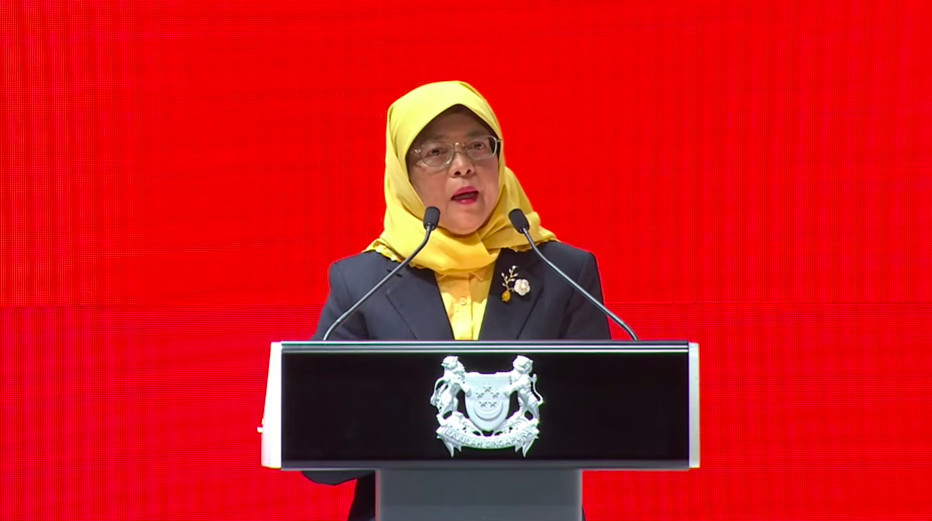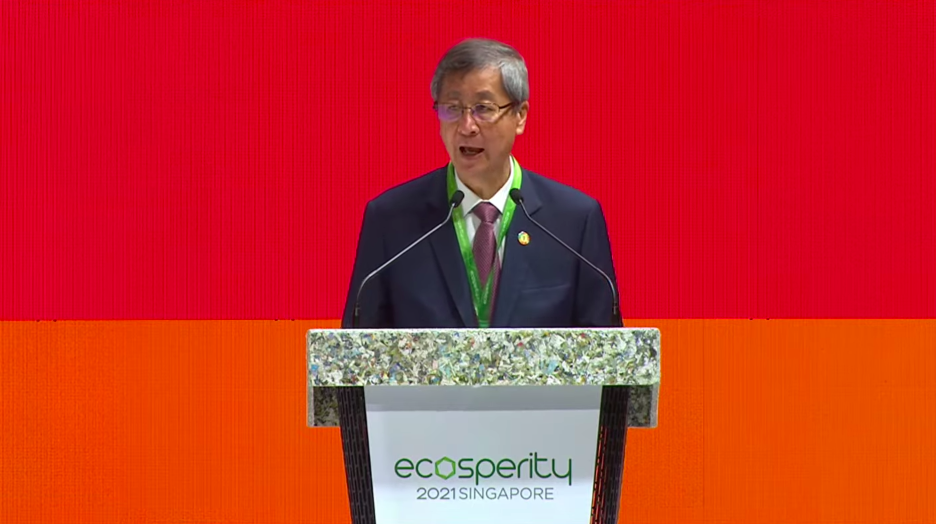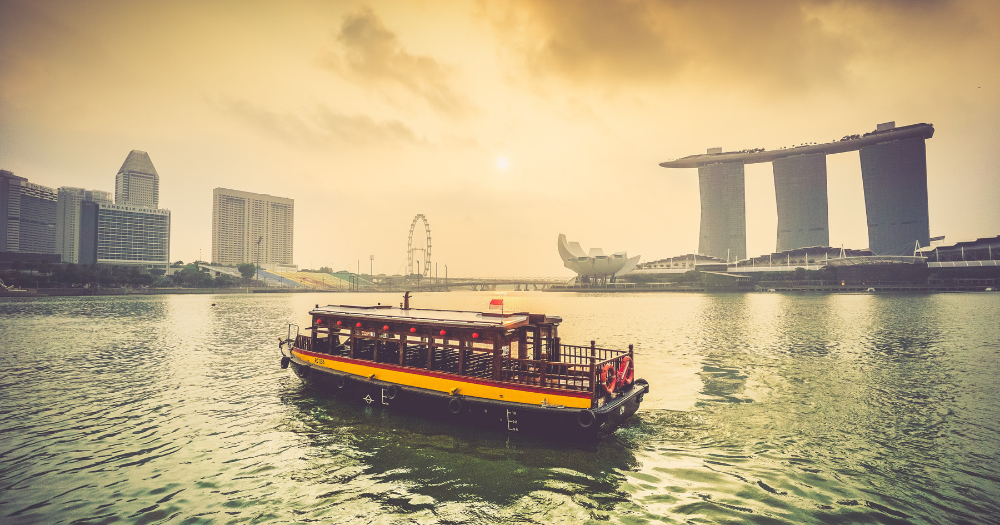Follow us on Telegram for the latest updates: https://t.me/mothershipsg
President Halimah Yacob highlighted the severe consequences of climate change in her keynote address at Ecosperity, an annual conference hosted by Temasek Holdings since 2014.
The conference gathers global leaders from public, private, academic and non-profit fields to discuss and share best practices on sustainable development.
"[Covid-19] has also alerted us to other threats to our societies, including climate change. There will be dire consequences of inaction to such threats, which we can now see clearly. We are living amid a climate crisis, and its impact could potentially be more severe than this pandemic," she said.
 Screenshot from Ecosperity.
Screenshot from Ecosperity.
A climate crisis
Temasek Holdings chairman Lim Boon Heng also echoed the same sentiment.
In his opening remarks, Lim said that the Intergovernmental Panel on Climate Change (IPCC)'s latest report confirmed that climate change is accelerating past the point of no return.
"It is a stark reminder that unless we take action to save our planet, we may face catastrophes during our lifetimes that are at least on par with, or be worse than, the human impact of Covid-19," Lim said.
Covid-19 and climate change
Lim remains optimistic about rising up to the challenge through innovation and technology.
"The human spirit of ingenuity often comes to the fore when we face our greatest challenges," he said.
He noted that while it took 50 years to develop a polio vaccine, but multiple viable candidates for Covid were made in a year.
"Covid has shown that the world can come together, but however, let's not wait for the seas to rise to our ankles and knees, or for the climate crisis to show even worse effects, before we act."
"We are past a wake up call," he added.
Disproportionate effects on Southeast Asia
While climate change affects every region of the world, Halimah emphasised the disproportionate effects on Southeast Asia.
If no climate action is taken and temperatures rise by 3.2°C by 2050, the GDP for Asean economies would be a third smaller than what it could have been in a world without warming, according to the Climate Economics Index by the Swiss Re Institute.
A one metre rise in sea levels would also leave at least 89 million people in the region living in zones of high risk frequency flooding, Halimah said.
With typhoons and other weather events becoming more intense and frequent, a higher human and economic toll would also follow.
Impact on Singapore
"The Centre for Climate Change Research in Singapore has projected that by the end of the century, daily mean temperatures could rise by up to 4.6°C," cited Halimah.
"Daily peak temperatures hitting 40°C could happen as early as 2045," Halimah added.
We are already experiencing these effects: four out of the past six years were among the top ten warmest years recorded in Singapore, and intense rainfall has caused more flash floods.
Soon, climate change will affect our access to critical resources like energy, water, and food, negatively affect our biodiversity, and pose severe implications for public health.
Transitioning to a net zero future
While the looming climate emergency is accelerating, so is the momentum for action.
Lim said that more organisations and companies are pledging emission reductions, committing to net zero goals, and more sustainable solutions are being developed and brought to market.
He also mentioned the rise of early-stage technologies pioneered by start-ups with no track records and these entrepreneurs are now sourcing capital from serious investors to fund stages of development.
At the individual level, Lim stressed that "no effort is too small".
"We need these actions to catalyse others," he said, that even the biggest efforts would not be enough unless they multiply.
 Screenshot from Ecosperity.
Screenshot from Ecosperity.
"There is immense, economic value in the transition to a net zero future," Halimah also said.
Halimah cited that a shift to a greener economy would create 24 million jobs globally by 2030, as reported by the International Labour Organisation.
She mentioned Singapore's history of turning challenges into opportunities, such as in water recycling.
As a small nation with no natural resources, Halimah found that sustainability has always been a cornerstone of Singapore's development story.
"The Singapore Story is testament to the fact that sustainability and economic growth may not be mutually exclusive," she said.
Willingness to act today with tomorrow in mind
According to a UNICEF report launched last month, approximately one billion children, nearly half of the world's children, live in countries identified to be at extremely high risk of impact by climate change.
"One of Singapore's defining characteristics in its brief history has been its willingness and commitment to act today with tomorrow in mind," said Halimah.
"As the saying goes, our society grows when old men plant trees whose shade they know they shall never sit in."
"We need to both figuratively, and literally, plant these trees," said Halimah.
She highlighted that robust dialogues, agreed outcomes and decisive actions are vital in our fight against climate crisis.
Top photo by Mike Enerio via Unsplash.
If you like what you read, follow us on Facebook, Instagram, Twitter and Telegram to get the latest updates.

